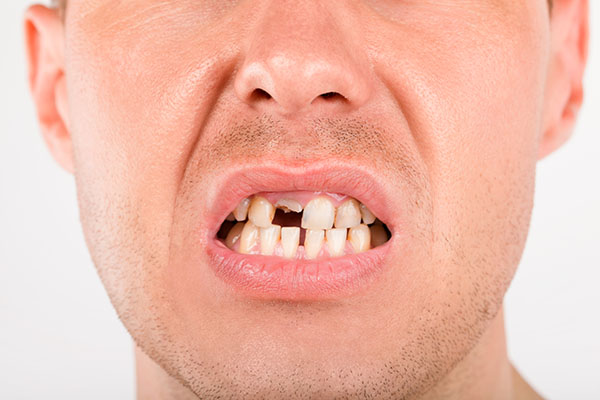Schedule a Dental Checkup if You Are Suffering From Sensitive Teeth
 If you have sensitive teeth, you need a dental check up to find out what is causing your pain. As a local dentist, we treat patients that deal with this issue. Sensitive teeth are common and as people age, even more so. Teeth can become sensitive for a variety of reasons including a lack of enamel, gum disease, and cavities. By visiting our dentist office, we can determine why your teeth are in pain and make a plan for treating them.
If you have sensitive teeth, you need a dental check up to find out what is causing your pain. As a local dentist, we treat patients that deal with this issue. Sensitive teeth are common and as people age, even more so. Teeth can become sensitive for a variety of reasons including a lack of enamel, gum disease, and cavities. By visiting our dentist office, we can determine why your teeth are in pain and make a plan for treating them.
Here are some of the solutions we offer:
At Home Care
If your teeth are in a lot of pain, schedule a dentist appointment right away. In the meantime, there is a simple step you can take to reduce the sensitivity. Use a soft toothbrush (instead of a normal one) and apply desensitizing toothpaste. It can take a few applications to notice a difference so brush several times in the first day if you need to. If your sensitivity is due to a lack of enamel, this will help to block the pain sensations from traveling to your roots.
Treating a Lack of Enamel
Your teeth are covered with a hard protective layer of enamel. Over time, the enamel can start to wear away due to what you eat, drink, a lack of oral hygiene and age. While normal, this can create a problem because underneath the enamel is dentin and dentin is full of tiny holes. These holes lead directly to the roots inside of the tooth so when you eat, drink or even breathe, sensations of pain can get to the roots faster and are transmitted to your brain. This is what causes those sudden and sharp feelings of pain, and we can identify this issue during a dental check up.
In order to treat this problem, we may recommend a fluoride treatment. This places minerals directly onto your teeth in order to strengthen them. Another way to deal with this is to complete a bonding procedure where a tooth-colored material is applied to the surface of your teeth. This seals in the dentin and prevents sensations from traveling through it. For teeth that are extra sensitive, we can also apply a dental crown to surround the tooth entirely.
Treating Gum Disease and Cavities
If you have gum disease, it can make your teeth, and your entire mouth feels sensitive. In its early stages, gum disease will make the gums swell up, bleed, and hurt. If it spreads, the gums will start to recede, and more of the tooth structure and roots become exposed which creates an area for bacteria to gather and attack the tooth. This can lead to pain and even bone loss. It is a serious condition that needs to be treated as quickly as possible in order to prevent tooth loss. We can identify and treat it quickly when you schedule a dental check up. Once healed, your teeth will feel less sensitive.
If you have cavities, this can also make your teeth feel sensitive. We can treat cavities quickly and keep you comfortable while doing so. After the cavity is treated, that area of your mouth will feel better and become less sensitive.
To learn more about what is causing your tooth sensitivity, schedule a dental checkup today.
Recent Posts
Going in for a dental checkup might not be at the top of your priority list, but it should be. There could be many reasons why you have not been to the dentist’s office for a year or longer. Life can get busy, or you may have fears or anxieties about these visits. Whatever has…
Getting a dental checkup twice a year is an important part of keeping your mouth healthy. It gives a dentist a chance to evaluate the patient for any developing oral issues, and preventative treatments like teeth cleanings are performed.Failing to see a dentist twice a year makes it possible for tartar to accumulate on the…
Without proper care, candy can greatly damage your teeth. Schedule a dental checkup to keep your teeth healthyIf it is time for a dental checkup or you have not had one in the last six months, give us a call. We won't judge you and truly only care about keeping your teeth healthy. Schedule your…
When it comes to preventive dental care, the approach is two-fold. First, it involves going to the dentist for regular checkups and performing any recommended follow-up treatment. Second, good oral health habits are crucial for keeping the body in good working order. For people living with chronic conditions such as diabetes and osteoporosis, keeping up…
 If you have sensitive teeth, you need a
If you have sensitive teeth, you need a 
